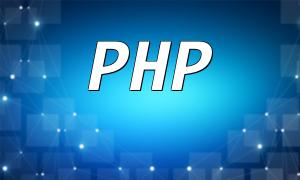PHP is a widely used server-side scripting language in web development. As the internet and applications continue to grow in complexity, the demand for PHP's performance has increased. The release of PHP8 brings not only new features but also comprehensive optimizations in its low-level development, meeting the needs for high-performance application development.
The low-level development of PHP mainly involves core components such as the compiler, interpreter, and virtual machine. PHP source code is first compiled into bytecode, which is then interpreted and executed by the interpreter. The virtual machine manages the scheduling and execution of the code.
The compiler is one of the key components of PHP8, utilizing Just-In-Time (JIT) compilation technology. This technology compiles hotspot code into native machine code at runtime, significantly improving execution speed. PHP8's compiler also introduces optimizations like type inference and strong type compilation, further enhancing performance.
The interpreter is another crucial part of PHP8's low-level development. It incorporates multithreading and concurrency, allowing PHP to handle more requests and improving the responsiveness of web applications. Additionally, PHP8 has optimized memory management by adopting more efficient memory allocation strategies, reducing memory usage and boosting performance.
PHP8's virtual machine is based on Zend Engine 4, offering high flexibility and scalability. It can be configured and optimized for different use cases. New internal data structures and algorithms have been introduced to improve execution efficiency and memory utilization in PHP.
PHP8 introduces several new features, improving both performance and functionality, and expanding the capabilities of PHP.
PHP8 introduces the JIT compiler, which compiles hotspot code into native machine code to improve execution efficiency. JIT technology allows PHP to handle more requests and provides faster response times in high-concurrency environments.
PHP8 strengthens its type system by introducing static type declarations and strong type compilation. This allows type errors to be detected during compilation, reducing runtime type conversions and improving code execution efficiency.
PHP8 expands its standard library and functions, enhancing PHP's functionality. For instance, the newly introduced string parser and formatting functions make string manipulation more efficient and flexible. PHP8 also enhances JSON support, simplifying the reading and writing of JSON data.
PHP8 further optimizes memory management by implementing new memory allocation strategies, reducing memory usage and boosting performance. Additionally, PHP8 has optimized the internal implementation of arrays, using more efficient data structures and algorithms to improve array manipulation performance.
PHP8 has created a high-performance development platform through optimizations in both low-level development principles and new features. Developers can leverage these new features and optimizations to build faster, more stable web applications. Understanding PHP8's low-level mechanisms and features will help improve code quality and application performance.
Overall, PHP8 provides developers with a powerful set of tools to build high-performance applications and fosters the innovation and development of the PHP ecosystem.








